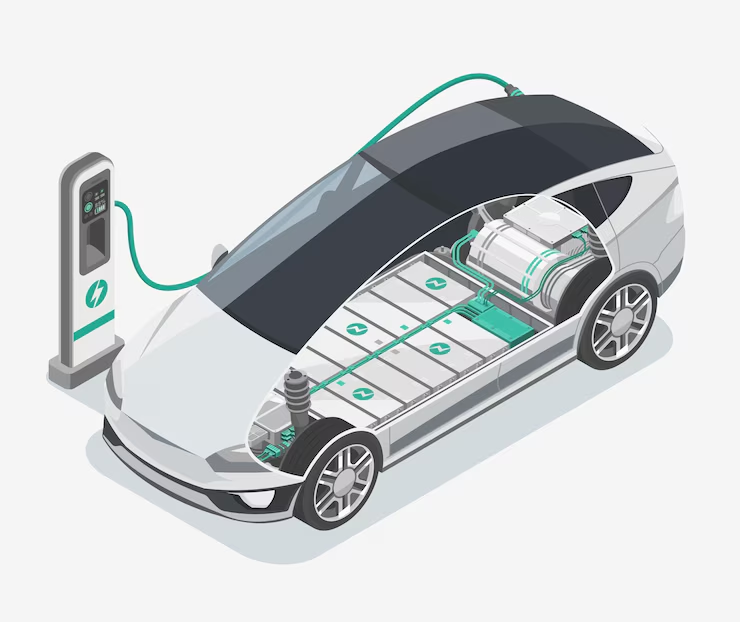Introduction
Thinking about going green with your next car Youre not alone. Comparing Electric vs Hybrid Cars Which is Right for You. world moves towards sustainable living many car buyers are torn between electric vehicles (EVs) and hybrid cars. Each comes with its own set of perks and limitations so how do you decide which one fits your lifestyle best? Buckle up were about to take a ride through everything you need to know before choosing between an electric or hybrid car.
Understanding the Basics
Electric Vehicle (EV)
An electric vehicle runs entirely on electricity. Instead of a gas engine, it uses a large battery and one or more electric motors to drive the car. EVs plug into a charging station or wall outlet and store electricity for use during travel.
Key Features
No gasoline required
Zero tailpipe emissions
Quieter operation
Fewer moving parts less maintenance
Hybrid Vehicle

Hybrid vehicles blend the best of both worlds. They come with a gasoline engine and one or more electric motors. There are several types
HEVs (Hybrid Electric Vehicles) No plug-in required. The battery charges through regenerative braking and the gas engine.
PHEVs (Plug in Hybrid Electric Vehicles): These can be plugged in and have a larger battery allowing some all electric range.
Mild Hybrids Use a small electric motor to assist the gas engine but cant drive on electricity alone.
Environmental Impact
EVs and Emissions
EVs are the champions of clean air. Since they dont burn fuel they produce zero tailpipe emissions. Their total environmental impact depends on how the electricity powering them is generated but theyre still significantly cleaner than conventional vehicles.
Hybrids and Emissions
Hybrids produce lower emissions than traditional gas-powered cars but arent completely emission free. They still use fuel and their environmental benefits vary based on driving habits. For city driving hybrids tend to be more efficient due to regenerative braking and electric-only operation at low speeds.
Fuel Efficiency and Range
EV Range and Charging Infrastructure
One of the biggest concerns for EV owners is range anxiety the fear of running out of battery with no charger nearby. However modern EVs offer ranges of 250 400 miles and charging infrastructure is expanding rapidly with fast chargers popping up across cities and highways.
Hybrid Fuel Efficiency
Hybrids shine in the fuel-efficiency department. Their electric motors reduce fuel consumption and since they can switch to gasoline, you never have to worry about charging. Long trips No problem—just fill up at the nearest gas station.
Maintenance and Reliability

EV Maintenance Needs
Electric vehicles have fewer moving parts which means fewer things can go wrong. No oil changes, no spark plugs and no transmission fluid. However battery maintenance and software updates are critical.
Hybrid Maintenance Complexity
Hybrids require dual system maintenance. That means youll still need oil changes and engine checks along with monitoring the battery and electric motor. While generally reliable, their complexity can lead to higher repair costs if something goes wrong.
Purchase Cost and Incentives
EV Purchase Price
EVs often have a higher upfront cost due to their batteries. But dont worry governments offer generous tax credits and rebates, which can significantly lower your out-of-pocket expense. Plus you’ll save on fuel and maintenance in the long run.
Hybrid Car Pricing
Hybrids are usually cheaper than EVs and more affordable than gas-guzzling SUVs in the long run. However the incentives for hybrids arent as generous as those for full electric cars especially in some countries.
Performance and Driving Experience
EV Acceleration and Smooth Ride
Ever heard of instant torque? EVs deliver power to the wheels immediately making them super responsive. Theyre also nearly silent offering a smooth and futuristic driving experience.
Hybrid Responsiveness
Hybrids have a smooth ride too but youll notice a slight shift when switching between electric and gas modes. Performance wise theyre solid but not quite as thrilling as electric vehicles in terms of acceleration.
Charging vs Refueling
Home and Public Charging for EVs
EVs can be charged using
Level 1 Chargers (standard wall outlet) Slow but handy overnight
Level 2 Charger Faster and commonly installed at home
DC Fast Chargers Found at public stations great for road trips
Charging at home is cheap and convenient but public infrastructure is still catching up in many areas.
Refueling Hybrids
With hybrids its business as usual just head to your local gas station and youre back on the road in minutes. No planning, no waiting.
Long-Term Cost of Ownership
EV Running Costs
Electricity is generally cheaper than gas and maintenance costs are lower due to fewer components. Some insurance companies even offer discounts for EV owners. However battery replacement (if needed) can be expensive.
Hybrid Running Costs
Hybrids strike a balance. You’ll save on fuel and reduce emissions but youll still need traditional maintenance. Over time they may cost less than gas cars but more than EVs in terms of upkeep.
Availability and Model Variety
EV Model Options
Tesla may be the poster child of EVs but many automakers now offer electric options. However choices can still be limited depending on your location.
Hybrid Availability
Hybrids have been around longer, which means more models to choose from. Whether you’re looking for a compact car or an SUV theres likely a hybrid out there for you.
Charging Infrastructure Challenges
EV Charging Accessibility
Urban areas are seeing a boom in public chargers but rural locations might lag behind. Charging availability is a real concern if you don’t have access to home charging.
No Charging Worries with Hybrids
Hybrids dont rely on chargers making them ideal for long-distance driving and remote areas. You get some eco friendliness without infrastructure headaches.
Which One is Right for You
Lifestyle Considerations
Live in a city with easy charging EV might be your best bet.
Drive long distances regularly Hybrid gives you flexibility.
Budget Constraints
Willing to pay more upfront for long-term savings and sustainability? Go electric.
Looking for an affordable fuel-efficient option today A hybrid is your friend.
Future Outlook
EV Growth Trends
Governments are pushing for full electrification and automakers are responding. EV prices are dropping and infrastructure is improving.
The Place for Hybrids
Hybrids serve as an excellent transitional option for those not ready to go fully electric. They offer a taste of the future without giving up traditional convenience.
Conclusion
In the end your lifestyle future goals and personal demands will determine whether you choose an electric vehicle (EV) or a hybrid automobile. An EV could be the ideal choice if you respect environmental sustainability have access to home or public charging and wish to lessen your reliance on fossil fuels. EVs are a great option for urban drivers and early adopters of clean technology since they have zero tailpipe emissions provide quiet and comfortable rides and require less maintenance over time.
A hybrid automobile on the other hand provides a useful and adaptable compromise if youre not quite ready to switch to electric power but still want greater fuel economy and less emissions than a conventional gas car People who often travel long distances reside in places with inadequate charging facilities or simply want the assurance that comes with a conventional fuel alternative may find hybrids particularly appealing.
Both choices provide significant advancements in the direction of a more sustainable future. Before choosing carefully consider your driving preferences financial situation and accessibility to infrastructure. Whichever route you go on youre heading toward a more intelligent and environmentally friendly driving style.

